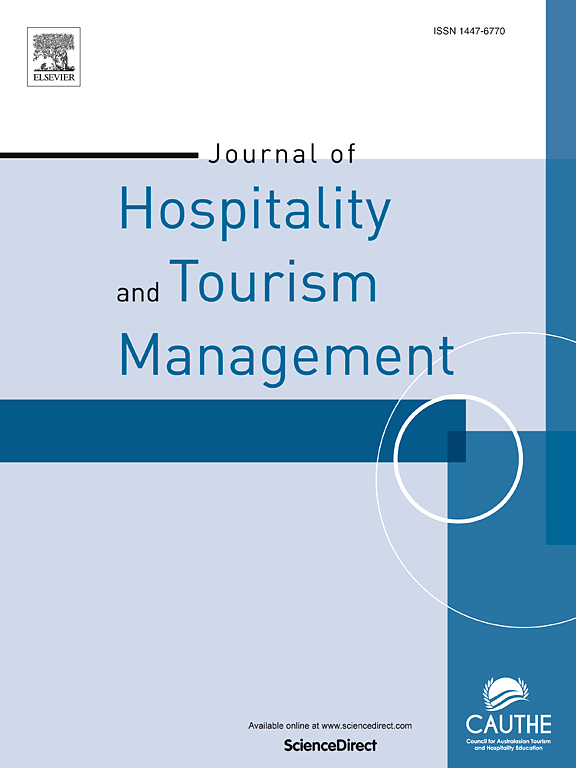Service robots in crowded environments: How crowd dynamics shape robotic adoption intention at events
IF 7.6
1区 管理学
Q1 HOSPITALITY, LEISURE, SPORT & TOURISM
引用次数: 0
Abstract
Service robots tackle labor shortages and improve customer experiences. While research has examined factors affecting robotic adoption, the impact of social crowdedness remains unexplored. Through a multi-experimental design, this study adopts a dual-role perspective to investigate how social crowdedness interacts with prominent robot-related factors (i.e., conversation initiation and personality), as a predictor and a moderator, in influencing robotic adoption intention in event settings. Key findings show that attendees are less willing to adopt robots in crowded settings, unless the robot initiates interaction, which are perceived as more intelligent and socially adept. The interaction between robot personality and social crowdedness reveals the contextual role of crowdedness in human-robot interactions, with social interactivity and perceived intelligence mediating the relationship. This study fills a critical gap in service robot literature by examining how social crowdedness influences human-robot interactions and intersects with key aspects of robot design. It also offers practical guidance for event organizers, suggesting collaboration with service partners to program robots for proactivity, personality, and crowdedness dependent.
拥挤环境中的服务机器人:人群动态如何影响活动中采用机器人的意愿
服务机器人可解决劳动力短缺问题,改善客户体验。虽然已有研究探讨了影响机器人应用的因素,但社交拥挤度的影响仍未得到探讨。本研究通过多重实验设计,采用双重角色视角,研究社交拥挤度作为预测因素和调节因素,如何与主要的机器人相关因素(即对话发起和个性)相互作用,影响活动场景中机器人的采用意向。主要研究结果表明,在拥挤的环境中,除非机器人主动发起互动,否则与会者不太愿意采用机器人,因为他们认为机器人更智能、更善于社交。机器人个性与社会拥挤度之间的相互作用揭示了拥挤度在人机互动中的背景作用,而社会互动性和感知智能则是这种关系的中介。这项研究填补了服务机器人文献的一个重要空白,研究了社会拥挤度如何影响人与机器人的互动,并与机器人设计的关键方面产生交集。它还为活动组织者提供了实用指导,建议他们与服务合作伙伴合作,为机器人编程,以实现主动性、个性和拥挤度依赖性。
本文章由计算机程序翻译,如有差异,请以英文原文为准。
求助全文
约1分钟内获得全文
求助全文
来源期刊
CiteScore
13.30
自引率
8.40%
发文量
177
审稿时长
45 days
期刊介绍:
Journal Name: Journal of Hospitality and Tourism Management
Affiliation: Official journal of CAUTHE (Council for Australasian Tourism and Hospitality Education Inc.)
Scope:
Broad range of topics including:
Tourism and travel management
Leisure and recreation studies
Emerging field of event management
Content:
Contains both theoretical and applied research papers
Encourages submission of results of collaborative research between academia and industry.

 求助内容:
求助内容: 应助结果提醒方式:
应助结果提醒方式:


